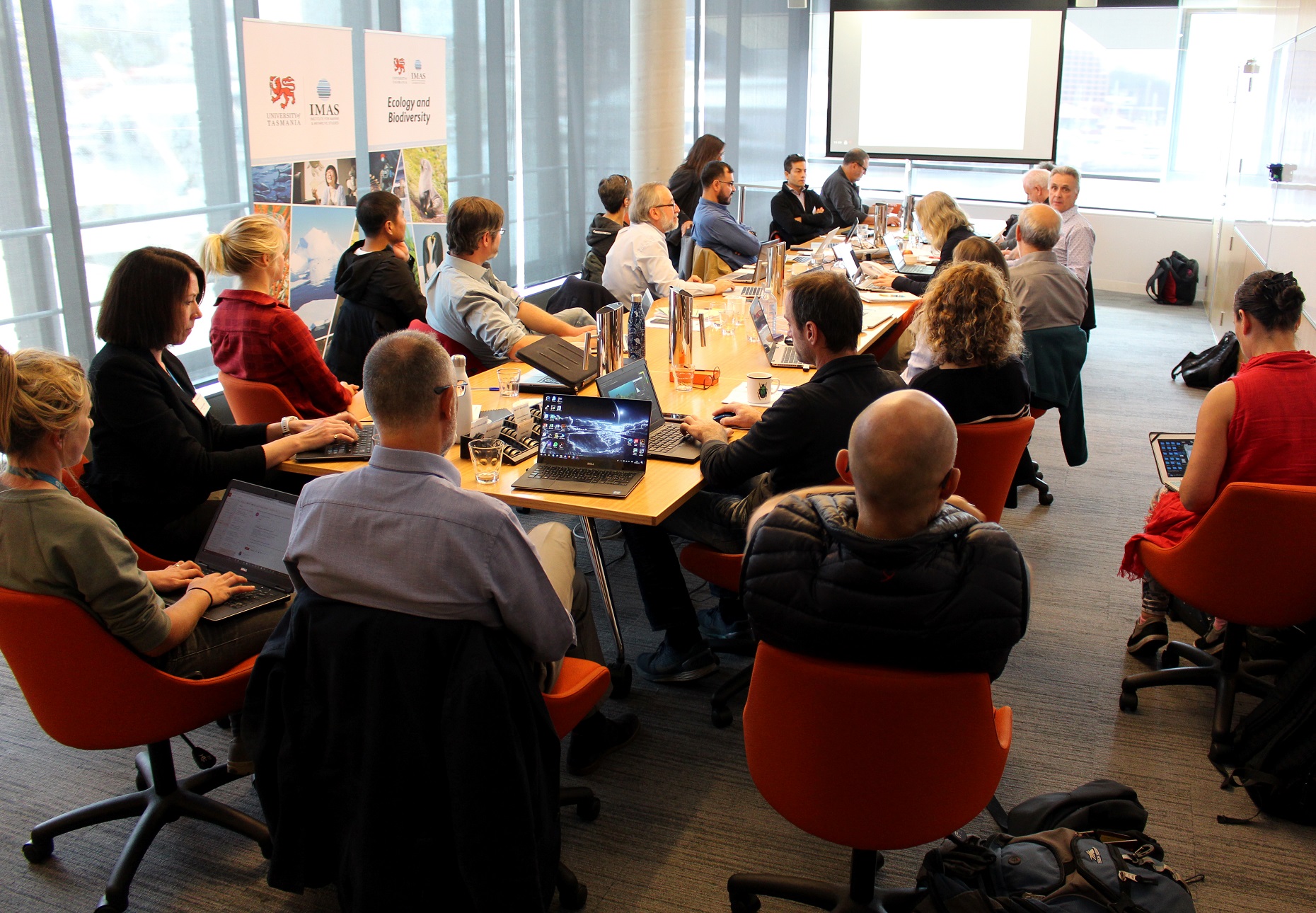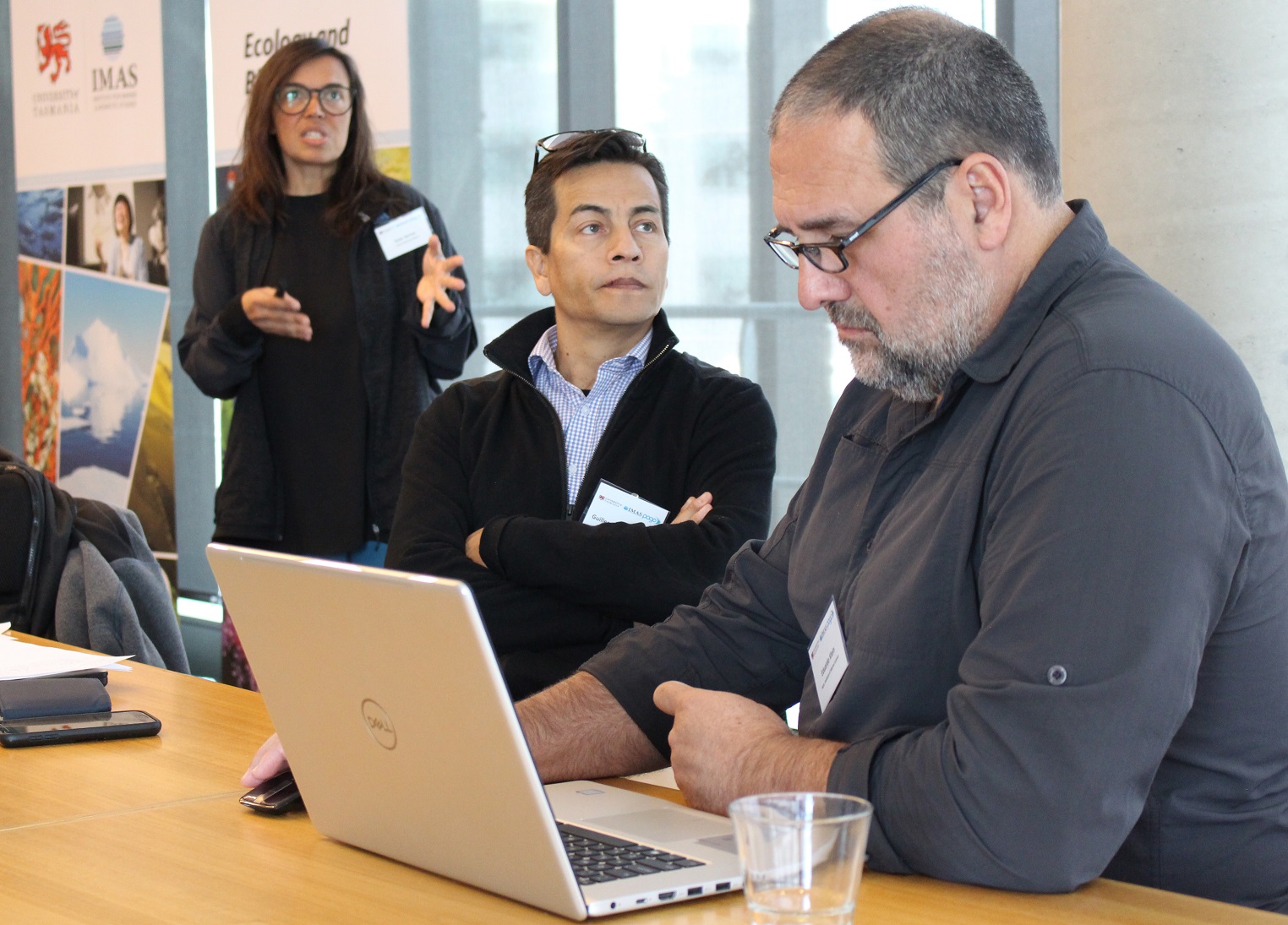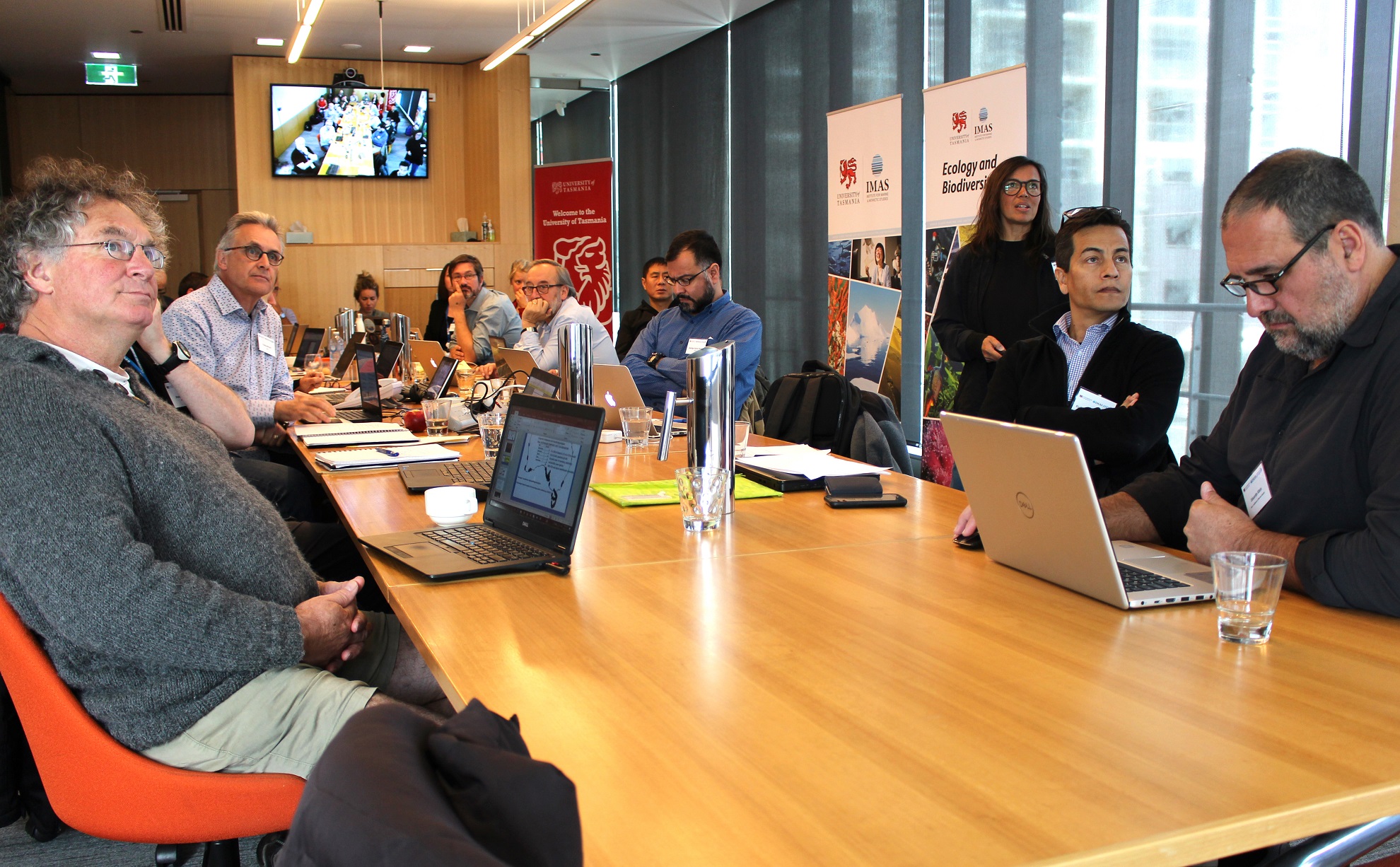
Twenty eight scientists from nine countries are this week meeting at IMAS in Hobart as part of a Working Group to develop a strategy for monitoring macroalgal (seaweed) ecosystems around the world.
The meeting has been organised under the auspices of the Partnership for Observation of the Global Oceans (POGO) and brings together researchers from Australia, Italy, Chile, USA, Mexico, Canada, Norway China and Portugal, while the full Working Group also includes South Africa and Venezuela.
The Working Group’s leader, IMAS Professor Craig Johnson, said the meeting aims to progress the development of a global monitoring strategy to assess macroalgal communities in a standardized, sustained, innovative and cost-effective way.
“Dominated by kelp and other brown algae, macroalgal forests are a highly productive and diverse ecosystem on rocky reefs around the world’s coasts,” Professor Johnson said.
 “Macroalgae perform many important functions and services, including providing nursery areas for marine life, human food resources, and protection from coastal erosion.
“Macroalgae perform many important functions and services, including providing nursery areas for marine life, human food resources, and protection from coastal erosion.
“But macroalgal forests are increasingly vulnerable to global threats such as ocean warming and acidification, and to regional human impacts such as habitat degradation, excess nutrients and other pollutants, overfishing, and invasive species.
“The compound effects of these multiple stressors are eroding the resilience of macroalgal ecosystems, making regime shifts and population collapse more likely.
“To tackle these problems we need to ensure that scientists have access to comprehensive data on macroalgal ecosystems worldwide, and to put in place a global monitoring program to assess changes in their diversity, distribution, and abundance.”
Professor Johnson said there is no single way to measure algal cover, and no global uniformity in access to resources for technologies to measure algal cover.
“The workshop will consider a range of technologies that can be applied globally to assess macroalgae in intertidal and subtidal habitats including drones, satellites, acoustics, automated underwater vehicles, divers, and measurements by hand at low tide.
 “We will also identify funding sources and strategies to facilitate a global approach to observation of macroalgae.
“We will also identify funding sources and strategies to facilitate a global approach to observation of macroalgae.
“This week’s meeting is an important first step towards ensuring that researchers and communities around the world are able to observe and respond to the significant challenges faced by one of the planet’s most important natural ecosystems,” Professor Johnson said.
The workshop runs from 24-26 September and is supported by POGO, the Intergovernmental Oceanographic Commission – Global Ocean Observing System Program (IOC/GOOS), IMAS, the NESP Marine Biodiversity Hub, and contributions from the participants’ institutions.